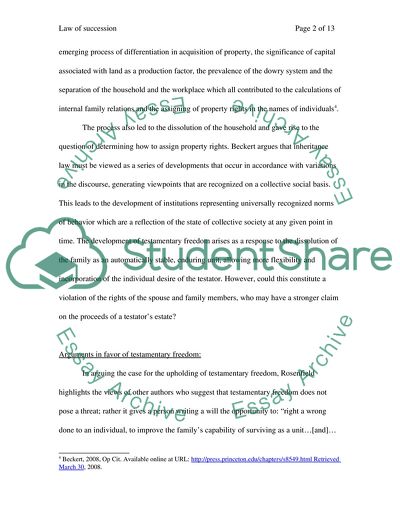Cite this document
(The Law of Succession Case Study Example | Topics and Well Written Essays - 3000 words, n.d.)
The Law of Succession Case Study Example | Topics and Well Written Essays - 3000 words. https://studentshare.org/law/1712815-law-of-succession-to-what-extent-should-a-testator-be-able-to-dispose-of-his-property-as-he-wishes-does-a-testator-owe-a-duty-to-provide-for-his-family-after
The Law of Succession Case Study Example | Topics and Well Written Essays - 3000 words. https://studentshare.org/law/1712815-law-of-succession-to-what-extent-should-a-testator-be-able-to-dispose-of-his-property-as-he-wishes-does-a-testator-owe-a-duty-to-provide-for-his-family-after
(The Law of Succession Case Study Example | Topics and Well Written Essays - 3000 Words)
The Law of Succession Case Study Example | Topics and Well Written Essays - 3000 Words. https://studentshare.org/law/1712815-law-of-succession-to-what-extent-should-a-testator-be-able-to-dispose-of-his-property-as-he-wishes-does-a-testator-owe-a-duty-to-provide-for-his-family-after.
The Law of Succession Case Study Example | Topics and Well Written Essays - 3000 Words. https://studentshare.org/law/1712815-law-of-succession-to-what-extent-should-a-testator-be-able-to-dispose-of-his-property-as-he-wishes-does-a-testator-owe-a-duty-to-provide-for-his-family-after.
“The Law of Succession Case Study Example | Topics and Well Written Essays - 3000 Words”. https://studentshare.org/law/1712815-law-of-succession-to-what-extent-should-a-testator-be-able-to-dispose-of-his-property-as-he-wishes-does-a-testator-owe-a-duty-to-provide-for-his-family-after.


